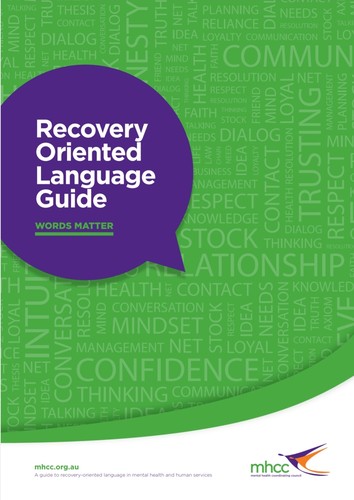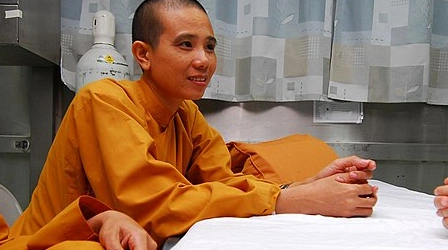Right Speech
Subscribe to this topic via: RSS
Caution! Under Construction
Please be aware that this tag is still under construction and as such is missing information and may be changed or removed at any time. For all the content under consideration for this tag, see the “Right Speech” folder on Google Drive.
Table of Contents
Books (4)
Featured:
See also:
Canonical Works (70)
Featured:
-
⭐ Recommended
One should know what it is to extol and what it is to disparage, and knowing both, one should neither extol nor disparage but should teach only the Dhamma. One should know how to define pleasure, and knowing that; one should pursue pleasure within oneself.
-
⭐ Recommended
… why did you get up from your seat and leave while there was still more left to do?
-
⭐ Recommended
It’s inappropriate to talk to an unfaithful person about faith…
-
⭐ Recommended
“Why, exactly, do you teach some people thoroughly and others less thoroughly?”
-
⭐ Recommended
… a mendicant who wants to accuse another should first check five things in themselves and establish five things in themselves
-
having heard that rough speech broadcast around,
A monk should bear it with an uncorrupt mind. -
… a monk who wishes to criticize another should first establish five resolutions
-
Nothing better than patience is found.
-
There is the case where a certain individual doesn’t practice for the subduing of passion within him/herself but encourages others in the subduing of passion
-
King Pasenadi realizes how silly it is, the things that make people lie.
-
if you’re patient, mindful and calm,
then you act for the good of both
for yourself and the other person -
… speech that has four factors is well spoken
-
… why bother a renunciate?
-
Although I did not have anything with which to practice generosity, I encouraged others.
-
⭐ Recommended
You should encourage your friends to practice the four kinds of mindfulness meditation.
-
⭐ Recommended
Mendicants, don’t engage in all kinds of low talk, such as…
-
⭐ Recommended
Bhikkhus, do not engage in disputatious talk
-
And how is an individual like an inscription in rock?
-
… what, bhikkhus, is the person whose speech is like dung?
-
… a bad person and a worse person, a good person and a better person
-
They arouse faith in things that are dubious, and they don’t arouse faith in things that are inspiring. When a foolish, incompetent untrue person has these four qualities they keep themselves broken and damaged.
-
… a person of integrity, when asked, does not reveal another person’s bad points, to say nothing of when unasked
-
… at the time of his final extinguishment. There the Buddha addressed the mendicants…
-
The person who practices to benefit both themselves and others is the foremost…
-
… those who have not long gone forth, who are newcomers in this Dhamma & Vinaya should be encouraged, exhorted, and established in these five things.
-
Five qualities by which a wheel-turning monarch’s son rules justly, and five corresponding qualities by which Sāriputta keeps rolling the Wheel of Dhamma.
-
… a mendicant who abuses and insults their spiritual companions can expect…
-
… five drawbacks for a person who talks a lot
-
Most people find you unlikable and unlovable. You have lots of enmity and many faults. You feel lost when you die.
-
However, when the boy has grown up and has enough sense, the nurse would be unconcerned about him.
-
If he strikes an elephant, he does it carefully…
-
… there is no bad deed they would not do
-
… your mouth is being eaten by worms
-
Bhikkhu, if one teaches the Dhamma for the purpose of revulsion towards the eye, for its fading away and cessation, one can be called a bhikkhu who is a speaker on the Dhamma.
-
If they listen to your advice, you should establish them in the four factors of stream-entry.
1 page -
… seeking an argument, searching for an argument, thinking: ‘I will refute his thesis,’ it is impossible that he could make that bhikkhu shake…
-
Man is born
with an axe in his mouth.1 page -
Mendicants, it is not appropriate for you who have gone forth to talk about such things.
See also:
Readings (14)
Featured:
-
⭐ Recommended
By virtue of both the so-called “mystical” experiences that frequently arise during PAP, and the long-term shifts to outlooks, values, and priorities that can follow treatment, the processes of decision-making that are normatively expected of patients run aground. If this framing is correct, then prospective patients cannot meet the requirement of understanding that is one of the principal analytic components of informed consent.
-
Our findings could be laid out along a developmental continuum: portrayals were seen to range from unreflective voicing of a reified self, to more developed self-narratives in which mindful awareness (a meta-position) was portrayed in dialogue: bringing an inquisitive, present-focused, and compassionate awareness to habitual reactions. The telos of development, as seen from both [Dialogical Self Theory and Buddhist] perspectives, entails de-positioning: describing simple awareness of being. Our analyses display how the voice de-reifies self, and how that voice may be taken up by practitioners, to varying extents.
-
They ask their communities to “wait and see” whether these allegations are true, with the unspoken assumption that they are not. I assert these responses use Buddhist teachings to uphold cis-masculine innocence by using hegemonic logics and commitments to downplay and delegitimize the phenomenon of sexual violence.
See also:
Audio/Video (11)
Featured:
-
That’s a Weird Thing to Lie About (2025) – Ira Glass, Dana Chivvis, Ike Sriskandarajah, and Diane Wu
I don’t think that lying is necessary. I think if we have honest, tactful interaction, we’re always going to be the better for it.
60 min -
⭐ Recommended
Someone yelled, ‘That dog gonna end up in a pot of rice!’
5 min -
⭐ Recommended
Let me make the songs for the people,
Songs for the old and young;
Songs to stir like a battle-cry
Wherever they are sung.5 min
See also:



